Amy LeBlanc: Humans of BioSciences
Meet Amy LeBlanc, science communicator and Chief Editor of the international news platform BioVox. Amy completed her Master of Science in Zoology in 2017 at the University of Melbourne, with a research project on the female bird song of Superb Fairywrens.
She was inspired to pursue a career in science communication after attending Dr Jen Martin’s Science Communication program as part of her coursework: “I realised that I don’t have the fine focus you need to be a researcher. I am much more of a generalist: I am interested in knowing a little bit about a lot of things…Science communication offered me everything I was looking for: constant exposure to new and interesting research; interaction with the amazing diverse people behind the studies; and an environment of continual learning and curiosity. I was hooked!”
Now living in Belgium, Amy reflects on her international experience, working in science as a non-researcher and how she integrates her personal and professional pursuits.
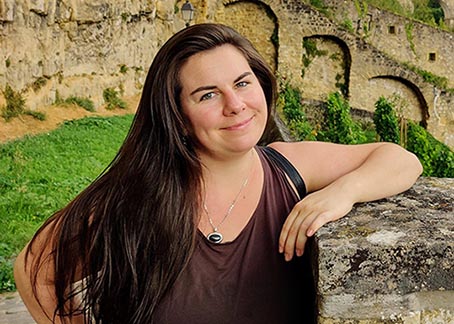
Can you tell us about your background?
I’m what you would call a world citizen: I was born in Sweden and lived both there and in the US before my family moved to Australia when I was 11 years old. We didn’t really know anyone in Melbourne; we just came for the country, the people and the lifestyle. Australia really became my adopted country; to this day it is the place that I call home. That being said, three years ago my partner and I moved to Belgium for work. We now live in a gorgeous medieval city called Ghent, in a crow-step townhouse built in the 1500s. Quite a change from urban Melbourne! We love it here, and plan to spend at least a few more years in Europe before eventually heading back to Australia. We try not to make our plans too concrete though: you never know where life will take you!
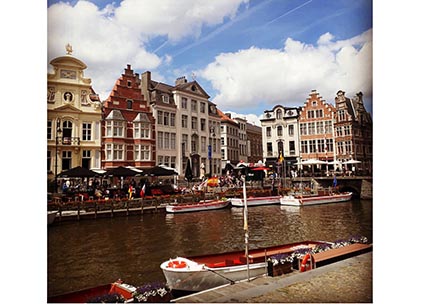
How did you get into science communication?
I completed my MSc in Zoology in 2017 at the University of Melbourne, with a research project focused on female birdsong. I was studying a small charismatic species called the Superb Fairywren and my research involved a lot of field work, crawling through bushes with a big fluffy microphone.
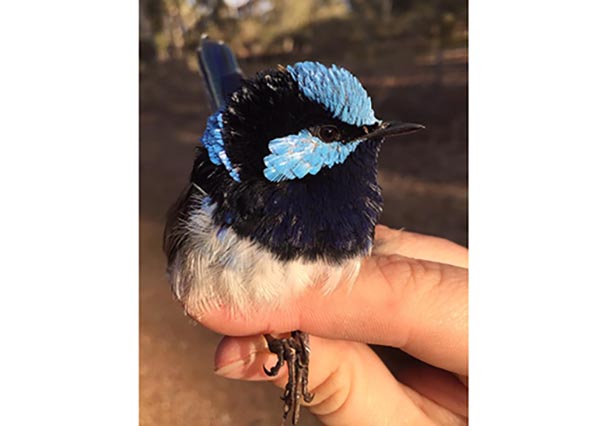
I learned so much during these years, with the most important insight being that, although I loved science, actually conducting research was not my thing. I had been interested in science ever since I was a child, but when it came to academic work, I realised that I don’t have the fine focus you need to be a researcher. I am much more of a generalist: I am interested in knowing a little bit about a lot of things.
So, during my degree I found myself facing the question: how do I stay involved in science without being a researcher? I was very fortunate to be studying at the University of Melbourne at the time, where the incomparable Dr. Jenny Martin was running several Science Communication subjects. I enrolled in one of her classes and immediately felt everything click into place. Science communication offered me everything I was looking for: constant exposure to new and interesting research; interaction with the amazing diverse people behind the studies; and an environment of continual learning and curiosity. I was hooked!
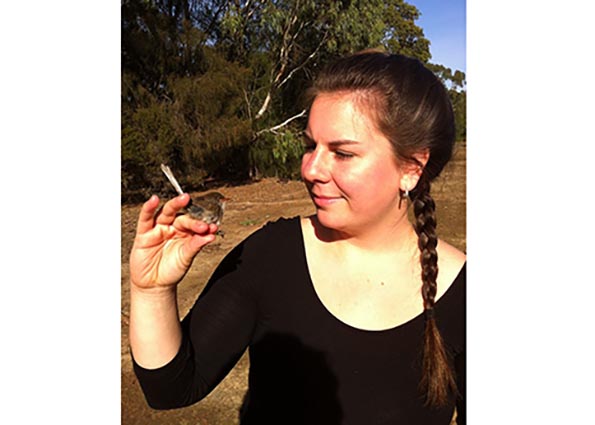
What’s it like working in science communication?
Through the various subjects at the University of Melbourne, and freelancing on the side, I started working my way through various forms of science communication to see what I liked best. I tried out teaching, presenting, art and even a stint on radio, but what really appealed to me most was science journalism. So, when I moved to Belgium in 2017, science journalism was what I focused on. I found a job working at a company called Turnstone Communications, which is a consultation agency for life sciences companies and institutions. Turnstone sponsors a non-profit news platform called BioVox, which covers life sciences news from both industry and academia. I have a dual role with both organizations. Through Turnstone, I support the communication efforts of companies, ranging from small biotech startups through to major international pharmaceutical companies. My work can be anything from creating a new website, to writing a press release, to social media management or developing a strategic communication plan. At BioVox, my job is very different. I am the Chief Editor of the platform, so I spend my time selecting topics for upcoming newsletters, conducting interviews, and writing and editing articles. The thing I love most about my job is that it is a constant learning experience. With every new client or article topic, I get to dive into a field I’ve never before explored. It is challenging, but incredibly rewarding.
What do you do in your spare time?
Food is life, in my opinion, so I like to spend a lot of my time cooking up a feast for family and friends. I’ve been fortunate to be able to travel to a lot of places, and I think the food I cook reflects my international background: anything from European to Asian, American and beyond. I’m constantly looking to broaden my horizons and travel as much as I can. Despite the years of field work, I’ve never lost my love of nature; camping is one of my favorite ways of seeing the world.
I also spend a lot of my time on “nerdy” pursuits like reading, board games and especially role-playing games. I don’t think it’s a coincidence that I love both role-playing games and science communication: they both rely heavily on storytelling, imagination and human interaction, and I genuinely believe there are a lot of transferrable skills between the two! I’m a firm proponent of integrating your personal pursuits with your professional work. Whether you have a talent for art, a love of sport or a flair for theater, there are always fantastic ways to find synergy between your work life and hobbies.
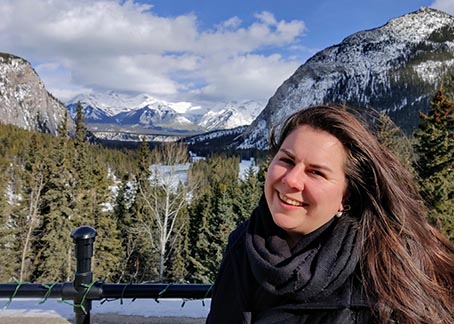
Do you have any advice for undergraduate students?
I think it is really important to realize that working in science isn’t limited to doing research. There are so many different professions that let you be immersed in scientific discovery: not just science communication, but also business development, finance, politics and more. The opportunities are endless, and I think the best way to uncover them is to open a dialogue with as many people as you can, to talk to them about their personal experiences. Opportunities will inevitably come your way; it is simply a matter of choosing which chances you would like to pursue.
Find Out More
Amy LeBlanc on Twitter
Science Communication at the University of Melbourne
BioVox International News Platform
'Humans of BioSciences' is a special new series to introduce the School of BioSciences' undergrad and postgrad students, our academics, professional staff and associates.